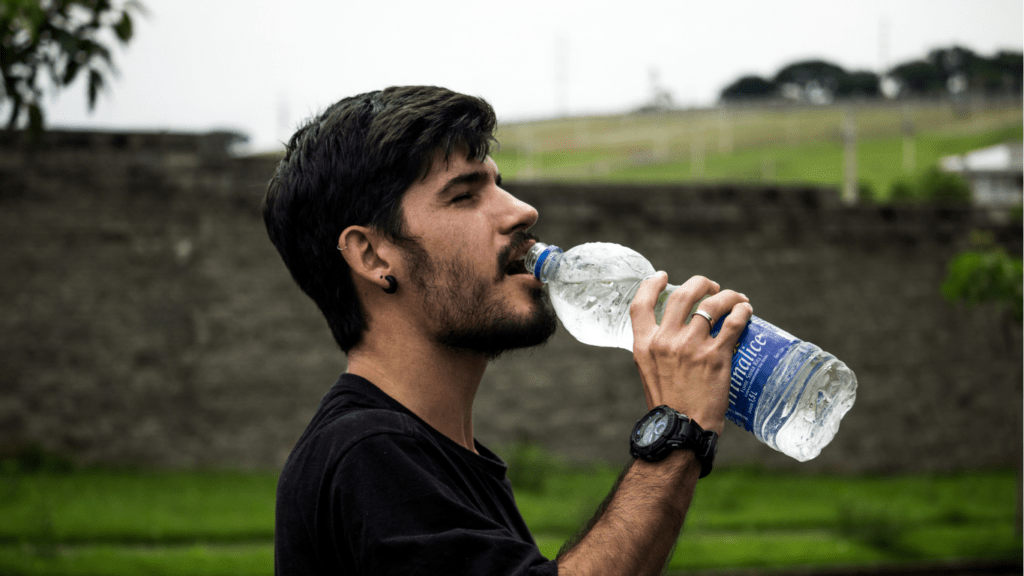The Importance of Staying Hydrated
Staying hydrated supports bodily functions crucial for overall wellness. Water aids digestion by breaking down food and helps absorb nutrients. It’s vital for maintaining a stable body temperature through efficient heat regulation. Blood consists largely of water, facilitating circulation and oxygen transport to various parts of the body. Without adequate hydration, these processes may falter, leading to fatigue and reduced cognitive performance.
Hydration plays a significant role in detoxification. Water assists kidneys in eliminating waste through urine, reducing the risk of kidney stones and urinary tract infections. Proper hydration keeps the skin plump and elastic, decreasing the appearance of wrinkles and enhancing glow. It also buffers joints, providing lubrication that impedes damage during physical activity. Drinking water can curb calorie intake by suppressing hunger, thus supporting weight management.
Recognizing the importance of water for these essential functions can motivate individuals to prioritize hydration despite busy schedules. By integrating consistent water intake into daily routines, one can harness these benefits for a healthier lifestyle.
Benefits of Drinking Water

Water is integral to overall wellness and supports both physical and mental health. Understanding its wide-ranging benefits can encourage an informed approach to daily hydration.
Physical Health Advantages
Hydration plays a fundamental role in bodily function. It aids in nutrient transportation and digestion, keeping metabolism efficient and promoting energy levels. Water assists in muscle function and joint lubrication, reducing discomfort and the likelihood of injuries during physical activities. Proper hydration supports cardiovascular health by maintaining blood volume, which ensures efficient oxygen transportation throughout the body. Skin health also benefits, with adequate water intake fostering a clear, supple complexion.
Mental Health and Cognitive Benefits
Drinking sufficient water enhances cognitive performance and mental alertness. Hydration influences mood by alleviating fatigue and anxiety as dehydration can impair concentration and memory. By promoting regular fluid intake, mental clarity and focus improve, aiding productivity and mental resilience. This cognitive boost highlights water’s critical role in maintaining mental equilibrium and reducing stress levels.
Common Myths About Hydration
Several myths about hydration persist, leading to misunderstandings. It’s important to tackle these misconceptions for improved wellness.
- 8 Glasses a Day: The ‘eight glasses a day’ rule lacks scientific backing. Individual water needs vary based on factors like activity level and climate. For example, athletes may need more to replenish lost fluids.
- Thirst Signals Dehydration: Thirst doesn’t always mean dehydration. While thirst is a signal, proper hydration should be maintained consistently throughout the day, not just when feeling thirsty.
- Caffeine Dehydrates: Caffeine does have a mild diuretic effect, but regular coffee or tea consumption still contributes to daily water intake. Studies (such as those by NIH) show moderate caffeine intake isn’t overly dehydrating.
- All Fluids Hydrate Equally: While water is best, other fluids like herbal teas and milk contribute to hydration. Sugary or alcoholic drinks may not be as effective.
- Dark Urine Always Means Dehydration: Though dark urine often indicates dehydration, factors like certain foods and medications also affect urine color. It’s best to consider multiple hydration signs.
Addressing these myths demystifies hydration, motivating individuals to make informed decisions that support health and wellness.
Easy Hydration Hacks for Everyday Life
Implementing simple techniques can significantly improve daily water intake. These hydration hacks fit seamlessly into any lifestyle, making it easier to stay hydrated.
Infused Water Recipes
Infused water adds flavor without sugar. Use fresh fruits and herbs to enhance taste while staying hydrated. Try these combinations:
- Cucumber Mint: Add cucumber slices and fresh mint leaves, refrigerate for an hour.
- Strawberry Basil: Use sliced strawberries and basil leaves; let them infuse overnight.
- Citrus Delight: Add lemon, lime, and orange slices for a refreshing twist.
These combinations make water enjoyable and encourage higher consumption, especially for those looking to cut back on sugary drinks.
Setting Hydration Goals
Establishing hydration targets helps track water intake. Personalized goals keep motivation high. Consider these strategies:
- Daily Tracker: Use a water bottle with time markers to remind you to drink throughout the day.
- Apps and Reminders: Download hydration apps that send reminders and track progress.
- Gradual Increase: Start with achievable milestones and gradually increase your intake.
These methods create a structured approach to maintaining proper hydration and ensure you’re drinking enough based on personal needs.
How Much Water Do You Really Need?
Determining the right amount of water can seem challenging, but it’s crucial for health and wellness. Many factors influence individual hydration requirements.
Factors Affecting Water Needs
Several variables affect how much water one should consume daily.
- Activity Level: Higher exertion increases sweating, leading to greater hydration needs.
- Climate: Warmer or humid climates demand more hydration compared to cooler ones.
- Diet: Consuming salty or protein-rich foods requires additional water for digestion.
- Health Conditions: Illnesses, especially those causing fever or vomiting, can deplete water levels.
- Age and Gender: Men typically need more water than women due to larger body mass, while children require adjusted intake based on their growth rate.
- Pregnancy and Breastfeeding: Such stages increase water needs to support both mother and child.
These factors suggest a personalized approach, allowing individuals to adjust their water intake based on specific circumstances.




